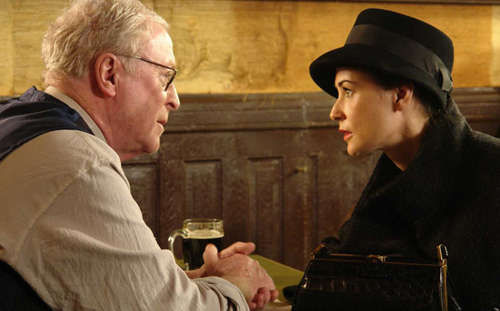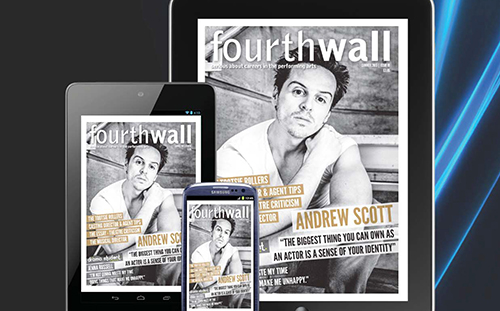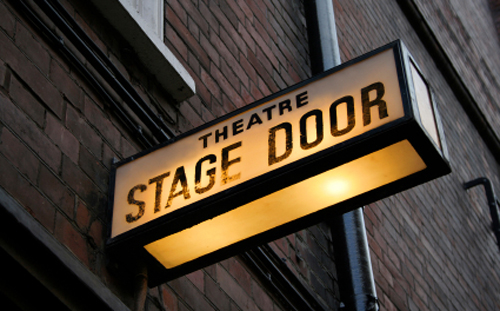
Prince John (Richard Lewis): “Why should the people listen to you?” Robin Hood (Cary Ewles): “Because, unlike some other Robin Hoods, I can speak with an English accent.” from Robin Hood: Men in Tights.
Mel Brooks' witty dig at Kevin Costner's hide-n-seek English accent in Robin Hood: Prince of Thieves has helped to make Costner's performance in the film top of many ‘Worst Accents in Movies' lists. He's joined by Dick van Dyke's attempt at a Cockney accent in Mary Poppins and Demi Moore's on-again-off-again English accent in Flawless. So, how important is it to get an accent right? Does it have to be perfect, or does the odd mispronunciation here and there not matter? Does a dodgy accent distract from a great performance?
I remember being surprised that the obvious errors in accent (for example in Demi Moore's performance in Flawless) weren't picked up on in production, and corrected. This would surely have avoided the field-day the press had comparing the title of the film to Ms. Moore's rendition of an English accent. Presumably there are (expensive) dialogue coaches available for these productions, and one can't help but wonder what went wrong.
Most of us will pick up at least a couple of habits – unconsciously
The interesting thing is, in “real life” many of us have mixed accents. There are a wide variety of influences on our natural accents. Spending time in different cultures even within the same country can change certain vowels and phrasing, as well as having friends who have accents different to our own. Most of us will pick up at least a couple of habits – unconsciously – if we spend enough time with the person. However, when it comes to accents in performance on stage, screen or radio, we tend to become intolerant of this.
It jars to hear a character who is supposed to have a particular accent, delivering it with tinges of a different dialect. Audiences become particularly critical when hearing their own native accent mispronounced.
Despite the fact that my own native accent is a mix of South African and R.P. – and I'm a perfectly real person – I'm well aware that if I don't pull off an accent accurately in performance or during an audition, it's more likely my audience will see it as incompetence rather than assume my character has spent time in South Africa or London. I'm therefore extremely careful when using a dialect that isn't my own, to make sure that the accent doesn't upstage me. In many cases – especially with an accent that's almost accurate – the odd word here and there breaks the illusion and the audience is reminded “it's only an actor”.
An excellent example of one word “giving an actor away” without their even realising it, is the word “adult” pronounced in an American accent (any American accent). Most of us who've not lived in the U.S. and don't have friends or family who are American (and even some who do!) when asked to pronounce “adult” in an American accent, will keep the emphasis of the syllables the same, and simply accentuate the “a” and possibly shorten the “u”.
I attribute a recent job to the confidence I gained in using this service for correcting the pronunciation of a few words using an East Coast American accent
And indeed I recently witnessed an audition by an English actor who did just that. He was auditioning for an American director, who later pointed out that his accent was excellent, but that his pronunciation of the word “adult” gave him away. Americans in fact, when pronouncing “adult” shorten the “a” and put full emphasis and stress on the “u” (rhyming with “assault”, but if you hadn't heard it spoken by an American, or you hadn't heard it recently, you would quite naturally assume the former.
For this reason I thought it would make sense to have a native speaker read my lines onto an mp3 file when using an accent that isn't my own – knowing that there may be words I'm unaware I'm mispronouncing. This led me to the website usemyaccent.com where actors are able to find native speakers of the accents they need for performance, auditions, show-reels and voice reels. They are then able to email the script to the “reader”, and receive in return, an mp3 with the actual words they'll be using, spoken in the authentic accent. I attribute a recent job to the confidence I gained in using this service for correcting the pronunciation of a few words using an East Coast American accent.
Actors are also able to register their own accents and read for others. Membership of the site is free, and readers arrange a fee for the reading directly with the actor. Many are even offering to read lines in their accent free of charge.
If only this site were around when Dick van Dyke and Kevin Costner needed it! ●
This article is published in Issue 5 of The Drama Student Magazine – subscribe now


Be the first to comment